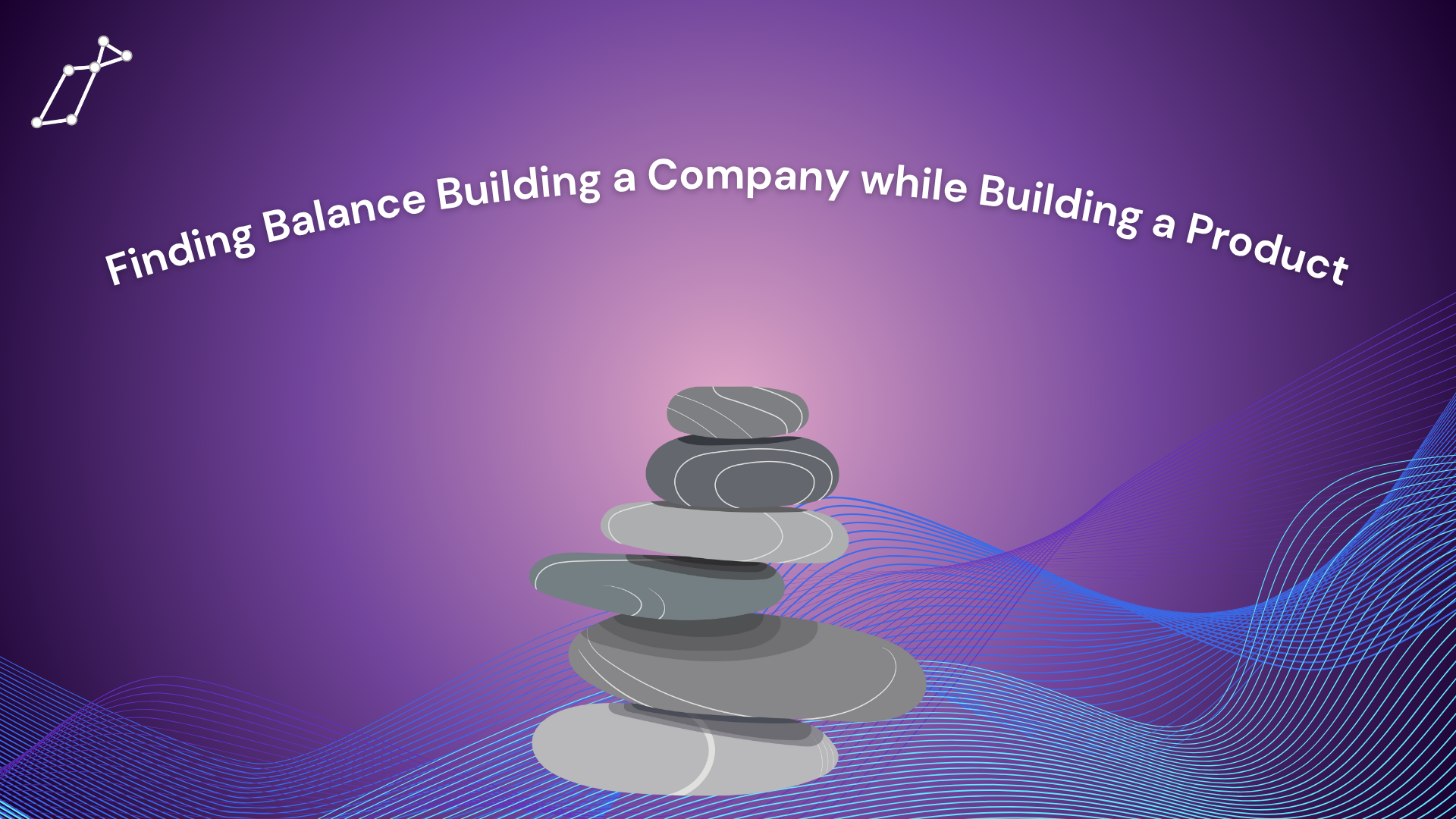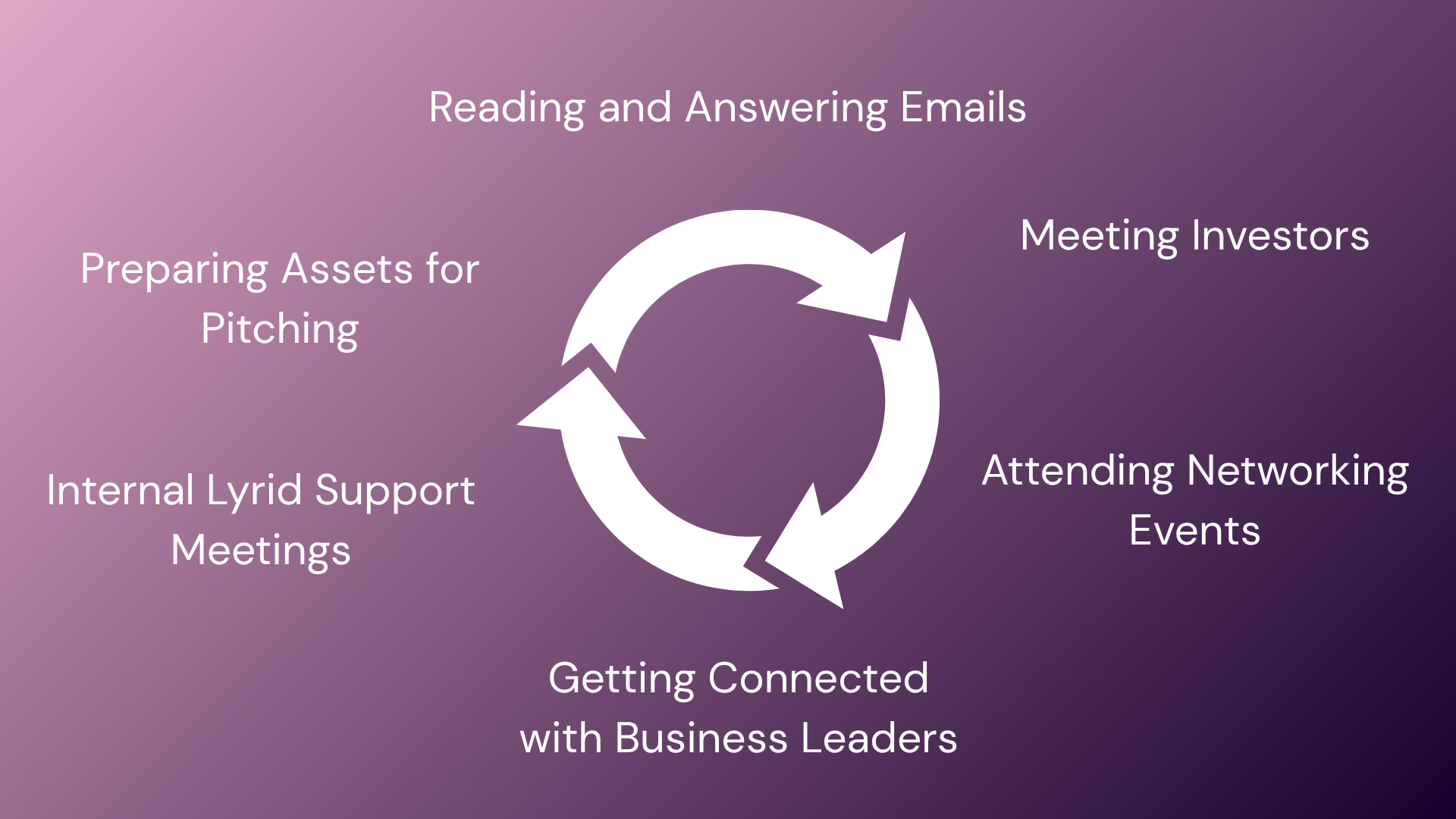Finding Balance Building a Company while Building a Product



Difficulty in Building a Company and Building a Product
Lyrid has been around for quite some time now- 6 years now to be exact! Developing Lyrid and all its components has been an exciting journey. Through my endeavors at Lyrid, I have been able to reach developers worldwide, partner with innovative leaders and data center giants alike, and cement a presence in developing startup communities. In this time, one of the most important things I have come to realize is that building a company and building a product simultaneously is extremely difficult.
To preface, the process for building a company and building a product at the same time will vary from company to company and is dependent on so many different factors. From the nature of your business and the stage and maturity of your company, to your application and audience base, building both company and product simultaneously comes with varying degrees of difficulty. It took me a long time to find a development balance that worked for me.
But what does this balance look like and how did I get to this point?
Building a Company
At the moment, roughly 60-70% of my time is dedicated towards building Lyrid as a company. This process includes:
- Reading and answering emails
- Meeting investors online or in-person
- Attending networking events
- Getting connected to other business leaders
- Internal Lyrid meetings and external stakeholder/support meetings
- Preparing assets for pitching
And so much more.

But certainly these tasks shouldn’t take up that much time, right? Well, sort of.
Meeting with investors and attending networking events are the most time consuming but most rewarding efforts. On average, I try to attend 1-2 networking events a week, with meetings with investors and partners being thrown into the mix. As a founder, attending these in-person events is critical to the success of any company: investors likely aren’t going to invest after only meeting once and networking is a great way to put yourself out there and establish your brand. Attending events can also create momentum and enthusiasm towards your company; be sure to research event attendees and carve out time for you to talk to them and create your networking tree.
As your network grows, this is where emails and following up with investors and partners come in. It is a constant cycle of following up, engaging, and meeting new people, with this cycle contributing to fundraising and partnership success down the road. Relationships, must like plants, must have upkeep! Losing a relationship and straying away from this cycle may happen, though it can be hard to get back on track once you’ve lost momentum.
Whether you’re a new founder or one that has been removed from a cycle, the beginning of the cycle is always the same: building momentum through traction. Traction, whether product based or company based, can come from various different sources, not just paying customers. Things like:
- Sign ups
- Community initiatives
- Network support
show investors that you’re already working heavily in your product and not waiting for investment to get started. Though for many new founders, gaining traction and momentum can be difficult when balancing time.
The time of early stage founders is often split into 3 different parts: fundraising, sales, and product development. This approach typically calls for an even 33% of time allocated to each segment (though in hindsight I should’ve allocated 50% into pure fundraising). Even with a clear time split comes this dilemma: how can you fundraise if fundraising is built on product innovations?
Product Building
If fundraising and building the Lyrid company makes up 60-70% of my time, then building Lyrid as a solution takes up the leftover 30-40%.
Whether you’re building a new product or creating new features within a core solution, developing an app or service that carries your company’s name requires time and collaboration. At an early stage of product and organizational development, founders are typically tied hip to hip with their product. Development does not happen without them and new features are not launched until they get the final say. That being said, once a company matures, the reins on a product are loosened.
We are fortunately in the position where Lyrid products can be developed mostly without my intervention. Whether it’s simple product maintenance or product innovations, Lyrid’s CTO and tech team have been able to dedicate more time for engineering work and product innovation.

The balance between building a company and building a product is maintained through delegation. The fact of the matter is, everyone is limited to only 24 hours a day, and being closely tied to each aspect of business while maintaining life outside of work is nearly impossible. Delegating is a necessity to balancing business and innovation, though it does have some nuance.
Delegating requires building a team that you can trust to build the company with or without you. Instead of a single person running the entire show, key team members become responsible for integral workflows and even application ownership. However, this does not mean completely neglecting innovation, but rather offloading once you get to a certain point. Holding key team members accountable for their processes through things like:
- Meeting
- Follow Up messages
- Development logging
- Product roadmaps
Helps you stay involved as a founder without having to have a hand in creation.
As with any business facet, communication in delegation is the key to success. Lyrid operates within 3 different regions, hosting 25+ employees across different timezones. There are bound to be communication siloes and you cannot always be there to break them down. Having key team members that have the initiative to operate cross functionally and work on the same page can make delegation easier than it is, with you initiating conversations for more important or time sensitive tasks. CEOs should empower individuals going that extra mile!
Getting to the point of delegation is a gut feeling, but has to be done. It isn’t necessarily a requirement of all companies, but at a certain point delegating tasks make growth more sustainable and achievable. I feel bad putting more time into building Lyrid and fundraising than developing solutions, however, this is something that must be done for the good of the company!
Final Thoughts
Finding the balance between building your business and developing a product is difficult, especially for new founders. Most of the time it feels like you’re pulled into so many different directions: one force pulls you towards fundraising and aiming for sales, the other pushes you to create the perfect product and innovate. While this experience doesn’t necessarily apply to everyone, I’m sure that most founders can agree on this sentiment.
Building a company is an extremely humbling experience and tests you in ways you didn’t know were possible. If you’re a first time founder, or have founded multiple companies, and want to chat about anything startup related, feel free to book a call with me! I’m always interested in learning more about different companies and startup ecosystems and would love to learn more about you.
And for first time founders curious about going about funding: stay tuned for our next Startup Talk!











